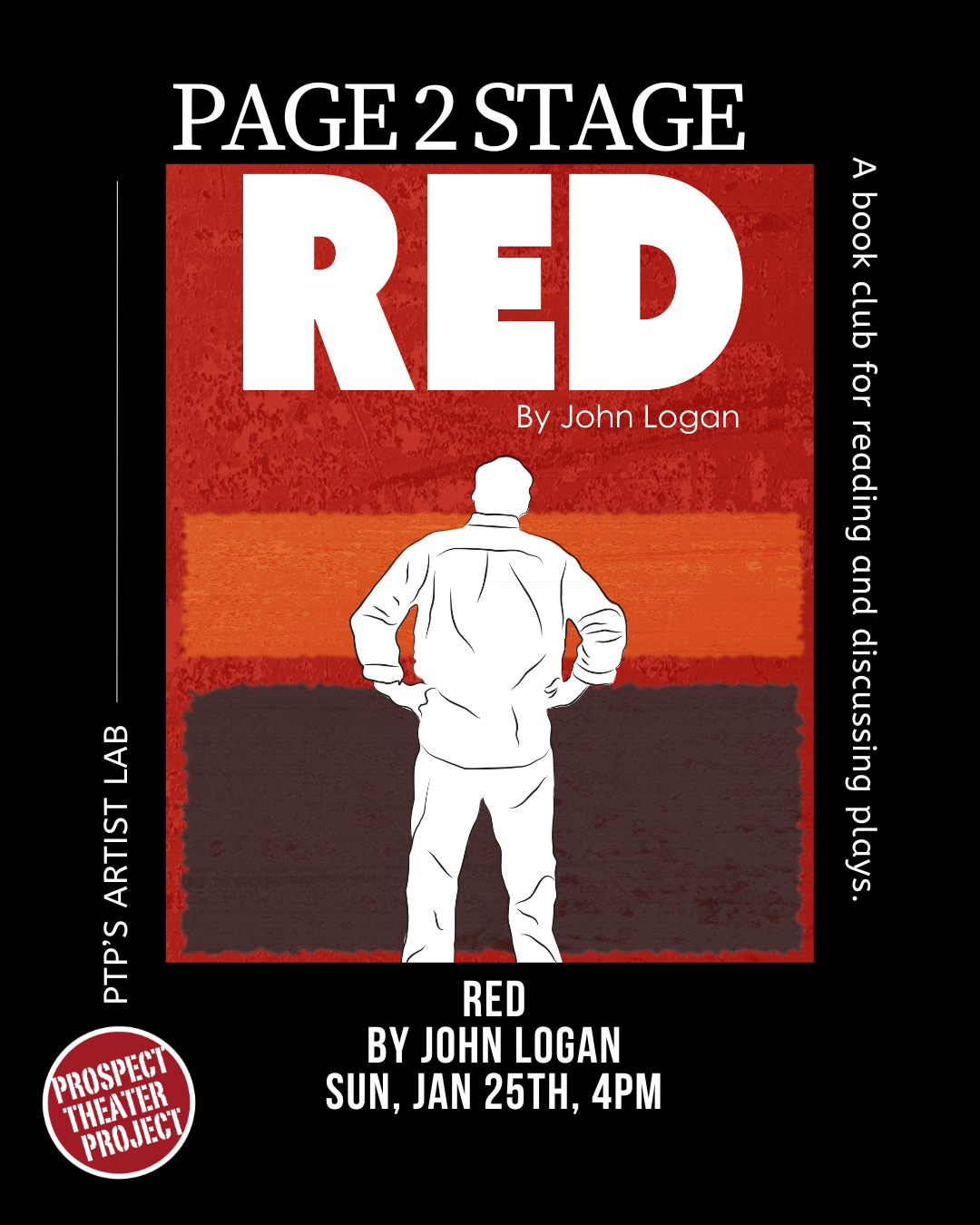
Get ready for our Page 2 Stage for RED!
Thank you for your interest in Page to Stage.
Page to Stage is a book club for scripts and plays!
How to participate:
Read the script, watch the play, and join our group discussion! Following the performance at Prospect Theater Project, we’ll be meeting in the Artist Lab.
LOCATION: 1218 K Street Modesto, CA
TIME: In the second week of performances, after the Sunday matinee
Prospect Theater Project Page to Stage Season 2025-26
William Shakespeare, Love’s Labor’s Lost, Sept 28
Stephen Deitz, Rancho Mirage, November 23
John Logan, Red, January 25
Diana Son, Stop Kiss, March 29
Noel Coward, Present Laughter, June 21
3rd Annual One Act Festival, August TBD
Don’t forget to pick up your copy of this season’s plays at Bookish, to read before the Sunday matinees – Love’s Labor’s Lost is on their shelves now!
- ADDRESS: 811 W. Roseburg Ave, Modesto
- PHONE: (209) 408-8067
- EMAIL: bookish@bookishmodesto.com
- WEBSITE: https://www.bookishmodesto.com/
Questions? Email info@prospecttheaterproject.org
PTP Page to Stage
RED
Happy New Year, Script-reading Enthusiasts!
We hope your holiday season has been refreshing.
Our next play is a little more heady: John Logan’s bracing philosophical discussion set to classical music around abstract impressionist canvases. Mark Rothko, late in his career, hires a new assistant, a younger, hungrier artist named Ken, just as he prepares a series of works for a brand-new restaurant in the Seagram’s Building in NYC. Five taut scenes allow them to wrestle with the meaning of art, life, and everything in between. This will be a great discussion, and don’t miss the accompanying exhibit in the Artist Lab.
Showcasing outstanding talent – Noah Thompson and Jack Souza, with direction by Molly Souza – this play is sure to get your brain moving for the new year!
We’ll give you more to think about in the next installment, but here’s a taste:
Four Darks on Red by Mark Rothko: “The painting’s black and maroon hues, layered in thin, atmospheric veils over a vivid red background, impart a sense of depth and muted radiance that envelops the viewer and commands total emotional and visual engagement.” Whitney Museum of American Art, https://whitney.org/artists/
We are so thrilled Bookish has agreed to supply our scripts this year. They should be available by Friday, January 9th. You can find Bookish at 811 W. Roseburg Ave, Modesto 209/408-8067 bookish@bookishmodesto.com
Meanwhile, let us know if you have any questions, and we’ll look forward to seeing you at the theater!
Prospect Theater Project Page to Stage Season 2025-26
? William Shakespeare, Love’s Labor’s Lost, Sept 28
?Stephen Dietz, Rancho Mirage, November 23
John Logan, Red, January 25
Diana Son, Stop Kiss, March 29
Noel Coward, Present Laughter, June 21
3rd Annual One Act Festival, August TBD
